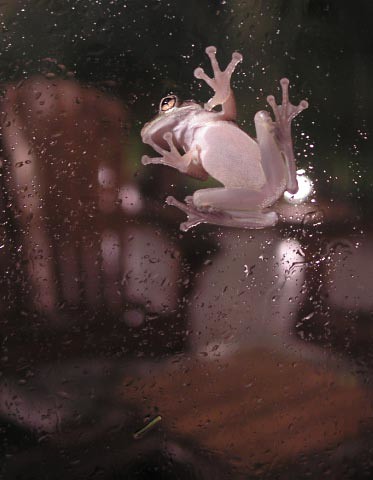...oh my god. they are on to me.
She's So Cool, So Smart, So Beautiful: Must Be a Girl Crush

By STEPHANIE ROSENBLOOM
THE woman's long black hair whipped across her pale face as she danced to punk rock at the bar. She seemed to be the life of the party. Little did she know that she was igniting a girl crush. Susan Buice was watching, and she was smitten.
Ms. Buice, 26, and the dancer (actually a clothing designer) happen to live in the same Brooklyn apartment building, so Ms. Buice, a filmmaker, was later able to soak up many other aspects of her neighbor's gritty yet feminine style: her layered gold necklaces; her fitted jackets; her dark, oversize sunglasses; and her Christian Dior perfume.
"I'm immediately nervous around her," Ms Buice said. "I stammer around her, and it's definitely because I think she's supercool."
Ms. Buice, who lives with her boyfriend, calls her attraction a girl crush, a phrase that many women in their 20's and 30's use in conversation, post on blogs and read in magazines. It refers to that fervent infatuation that one heterosexual woman develops for another woman who may seem impossibly sophisticated, gifted, beautiful or accomplished. And while a girl crush is, by its informal definition, not sexual in nature, the feelings that it triggers - excitement, nervousness, a sense of novelty - are very much like those that accompany a new romance.
This is not a new phenomenon. Women, especially young women, have always had such feelings of adoration for each other. Social scientists suspect such emotions are part of women's nature, feelings that evolution may have favored because they helped women bond with one another and work cooperatively. What's new is the current generation's willingness to express their ardor frankly.
"Historically, talking about these kinds of feelings has gone in and out of fashion," said Paula J. Caplan, a sociologist who this fall will teach a course about the psychology of sex and gender at Harvard. Women have not been this blunt in expressing their crushes for several generations, Dr. Caplan said.
The phenomenon has been little studied, but some social scientists say they are glad that it is being discussed more, because it can be a window into how women mature emotionally.
"It's a little bit like when you're in elementary school and you first fall in love with someone," said Leslie Hunt, 34, who manages an arts internship program in New York and who once had such a potent crush on woman that she became sweaty in her presence.
Still, a crush is a relatively mild form of infatuation. People have killed themselves over true love, said Helen Fisher, an anthropologist at Rutgers University who has written extensively on human love. Think of Romeo and Juliet. With a girl crush, Dr. Fisher said, "you won't kill yourself if she doesn't want to jump rope with you." For that reason, girl crushes can give women safe and valuable experience in the emotions of love.
Dr. Fisher, the author of "Why We Love: The Nature and Chemistry of Romantic Love," said girl crushes are as natural as any other kind of love. But they are romantic without being sexual. Love and lust are distinct urges, Dr. Fisher said.
This was one of the findings she and colleagues from the Albert Einstein College of Medicine and the State University at Stony Brook made when they analyzed brain scans of people 18- to 26-years-old who were experiencing new love. Love and lust, it turned out, could be mapped to several separate parts of the brain.
"The brain system for romantic love is associated with intense energy, focused energy, obsessive things - a host of characteristics that you can feel not just toward a mating sweetheart," Dr. Fisher said, adding that "there's every reason to think that girls can fall in love with other girls without feeling sexual towards them, without the intention to marry them."
Wendy Lim, 26, a student at Harvard Business School, experienced such feelings about a year ago when she met another young woman in a Boston bar. The woman was open and outgoing, and when the evening was over, Ms. Lim very much wanted to talk to her again. "I remember at the end of the night wanting her phone number," Ms. Lim said, who felt awkward about asking. "I wouldn't ask a guy for his number."
As it turned out, the woman asked Ms. Lim for her number. The two saw each other again, and Ms. Lim's crush quickly blossomed into friendship, a friendship the women now cherish.
Crushes are typically fleeting, and infatuation often turns to friendship in this way. Lisa Lerer, a journalist, and Laila Hlass, a law student, both 25 and both of New York, started their friendship several years ago with a mutual crush. "We're still in love," Ms. Lerer said, "but the wooing period is over."
Tammea Tyler, 28, assistant director of child development services at the Y.M.C.A. of Greater New York, has a crush that looks as if it soon will make the change. The object of her infatuation is a colleague, Denise Zimmer, senior executive for government operation, who is 48.
Ms. Tyler said she admires Ms. Zimmer's intellect and her inner strength. "She really knows her stuff, and there's something almost sexy about that," Ms. Tyler said. "There's just something really sexy and powerful."
Ms. Zimmer, when a reporter told her about Ms. Tyler's feelings, said: "I was very surprised. Sometimes, when you don't have a direct relationship with someone, you don't really understand how they're observing you."
And while Ms. Zimmer did not say she had a reciprocal crush, she did say that she considers Ms. Tyler talented and grounded and that "it's exciting to work with someone who has shown that kind of interest." She added, "It's a mutual respect."
Once a crush is revealed, it can change the dynamics of a relationship. "I think that I will be more sensitive and more focused on sharing things with her that I think will help her achieve some of the goals that she has," Ms. Zimmer said.
Sometimes, though, a girl crush is so strong it makes the object of affection uneasy, killing the possibility of friendship.
Jane Weeks, 44, a freelance art and creative director in Truckee, Calif., knows what it is like to be the object of another woman's crush. She has encountered a few women who have eagerly adopted her tastes in food and interior design, her favorite colors, even her hairdresser. "At first it's flattering you're inspiring them," she said. "When they parrot back parts of yourself, it's extremely uncomfortable."
Ms. Weeks, an outdoorswoman who has hiked through the Andes from Argentina to Chile, said some women are more enamored with what she represents - "some National Geographic chick" - than with who she is. "When you're on a pedestal, there's no way but down," she said. "And it's lonely up there. You can't share your weaknesses."
Pepper Schwartz, a professor of sociology at the University of Washington and the relationship expert at PerfectMatch.com, said she also has been a frequent subject of girl crushes - from her students. Some have made it obvious by bringing gifts, including earrings, flowers and even poems. But Dr. Schwartz does not encourage her students to look at her with starry eyes. She would rather they look to her for guidance on developing their careers.
"You're a hero because they think you've done something unimaginably powerful," Dr. Schwartz said. "Your job is to show them that they own something equally special."
Perhaps the last time that young women were as willing as they are now to admit to their attraction to each other was in the 19th century. "Back when Louisa May Alcott was writing, women were writing these letters to each other," Dr. Caplan said. "They wrote: 'I miss you desperately. I long to hug you and talk to you all night.' " Referring to another woman as a girl crush, she said, is not dissimilar to that 19th century behavior.
But such impassioned expressions of affection were uncommon, for instance, in the 1960's and 70's, when homophobia was even more rampant than it is today, Dr. Caplan said. Women were often uncomfortable admitting to strong feelings for other women, fearing that their emotions would seem lesbian, she said. And those same women, older now, can still be shy about expressing their emotions for each other. "Women my age are more likely to say 'I adore' or 'I value' my women friends,' not girl crush," she said.
As for men, to the extent they may feel such emotions for each other, Dr. Caplan said they are less likely than women to express them. They are not reared to show their emotions. "A man talking about emotions about another man? Everybody's homophobic feelings are elicited by that, and that's because men aren't supposed to talk about feelings at all," Dr. Caplan said.
Susan Malsbury, 24, who lives in Brooklyn and is a booking agent for bands, said that because a girl crush has the potential to become an important part of one's life, she cannot help but feel a tinge of excitement whenever she meets a fascinating woman to add to her collection of crushes.
"They're better than boy crushes," Ms. Malsbury said, with more than a hint of mischief in her voice. "You don't have to break up with them after two weeks."






